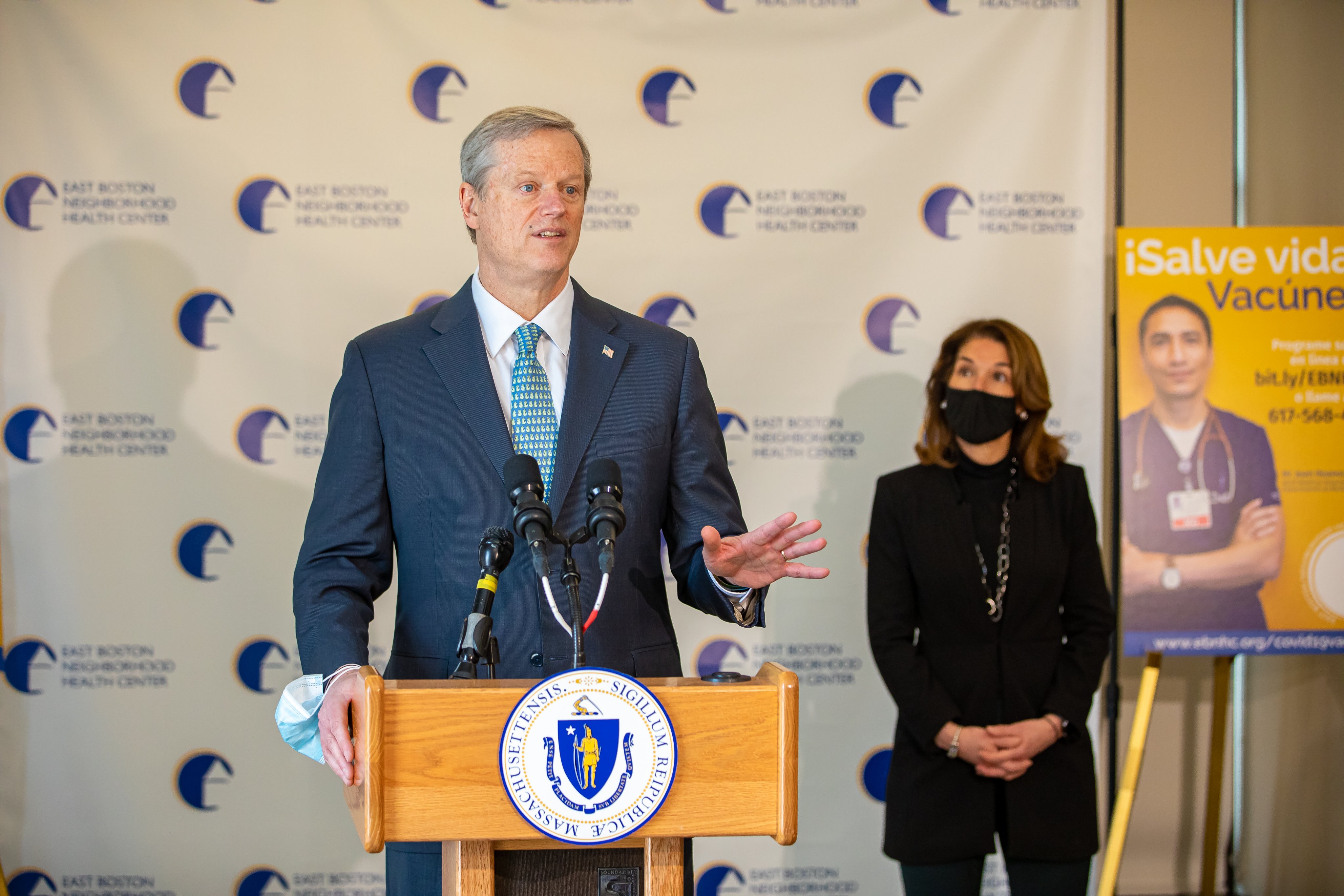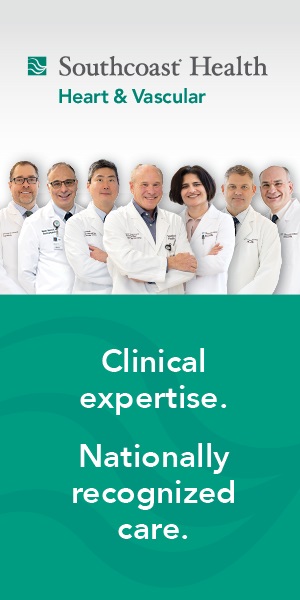latest
Baker Administration announces initiative for hardest hit COVID-19 communities including Fall River, New Bedford, Brockton

BOSTON (February 16, 2021) – The Baker-Polito Administration today announced a targeted outreach initiative in 20 cities and towns most disproportionately impacted by COVID-19 and $1M to the MA League of Community Health Centers to support vaccination in historically underserved communities.
According to the Administration, the Department of Public Health will invest resources directly in the 20 cities and towns most disproportionately impacted by COVID-19 to increase awareness of the vaccine’s safety and efficacy and to reduce barriers to vaccination. DPH will assist each city or town by working with local leaders, and community- and faith-based groups to strengthen existing efforts focused on awareness and overcoming barriers so that residents will get vaccinated when it’s their turn.
The initiative will focus on 20 cities and towns with the greatest COVID-19 case burden, taking into account social determinants of health and the disproportionate impact of COVID-19 on BIPOC. These communities are Boston, Brockton, Chelsea, Everett, Fall River, Fitchburg, Framingham, Haverhill, Holyoke, Lawrence, Leominster, Lowell, Lynn, Malden, Methuen, New Bedford, Randolph, Revere, Springfield, and Worcester.
Massachusetts now ranks in the Top 10 for vaccinations per capita according to the CDC and last week administered more doses per week than it received from the federal government.
This list of 20 is a subset of the cities and towns that met the Massachusetts COVID Advisory Group recommendation to prioritize communities using the CDC’s Social Vulnerability Index (SVI) and COVID-19 case rates since the start of the pandemic. Those communities were then ranked by average daily COVID-19 case rates in each city and town (excluding cases in long-term care and correctional facilities and communities with under 30,000 residents). From this ranked list by case rate, the top 17 cities and towns with the highest percentage of people of color were identified. The list of 20 cities and towns includes three additional communities to capture the top 15 communities with the highest daily COVID case rates.
“We recognize the deep knowledge and expertise that exists in every community and our aim is to listen, respond, and work in concert to develop a customized approach for reaching as many residents as we can to increase vaccination,” said Public Health Commissioner Monica Bharel, MD, MPH. “This approach is centered on equity, a core pillar of our vaccine distribution. Our goal is to work in collaboration with our local communities, to meet people where they are, and to reduce barriers – both physical and otherwise – to getting the COVID vaccine.”
The new DPH initiative will support a tailored community-based approach around the individual needs identified by each municipality. As part of the outreach, a DPH Community Liaison will work to leverage and coordinate state resources and customize a menu of options to be offered to each community, which may include:
· Identifying gaps and mapping available resources to reduce barriers to vaccination
· Coordinating and supporting key stakeholders including Local Boards of Health, local Community and Faith-Based Organizations, Community Health Centers, and Community Health Workers who can support grassroots outreach
· Deploying DPH Vaccine Ambassadors to provide support for town halls and other local forums to share information and materials, including a DPH forum guide and toolkit
· Disseminating culturally appropriate translations of communications campaign materials, including Trust the Facts. Get the Vax. campaign materials and vaccine FAQs in multiple languages
· Hiring local residents to provide “boots on the ground” for neighborhood and local business outreach, which may include a door-knocking campaign to provide information and answer questions about vaccine efficacy and safety
The Administration has invested $1M in the MA League of Community Health Centers to support community health center efforts to increase vaccine safety awareness in communities disproportionately impacted by COVID-19, with the goal of addressing vaccine hesitancy and increasing COVID-19 vaccination rates for individuals and communities disproportionately impacted.
The program has three main objectives:
· Increase vaccine confidence and knowledge among community engagement staff at health centers
· Implement dissemination of culturally relevant and linguistically diverse patient education materials
· Identify and partner with local community-based organizations to provide information and tips to engage people in vaccination conversations

Under the initiative, qualified health centers may apply for $25,000 grants via the MA League of Community Health Centers to assist Community Health Workers to engage patients and community members in vaccination discussions to increase vaccine uptake in the Commonwealth’s hardest-hit communities. The funding helps health centers in several critical ways, including supporting providers and staff in having one-to-one conversations with patients to answer their questions and concerns, bringing these individualized dialogues to the broader community, and using online and other communication channels and resources.






You must be logged in to post a comment Login